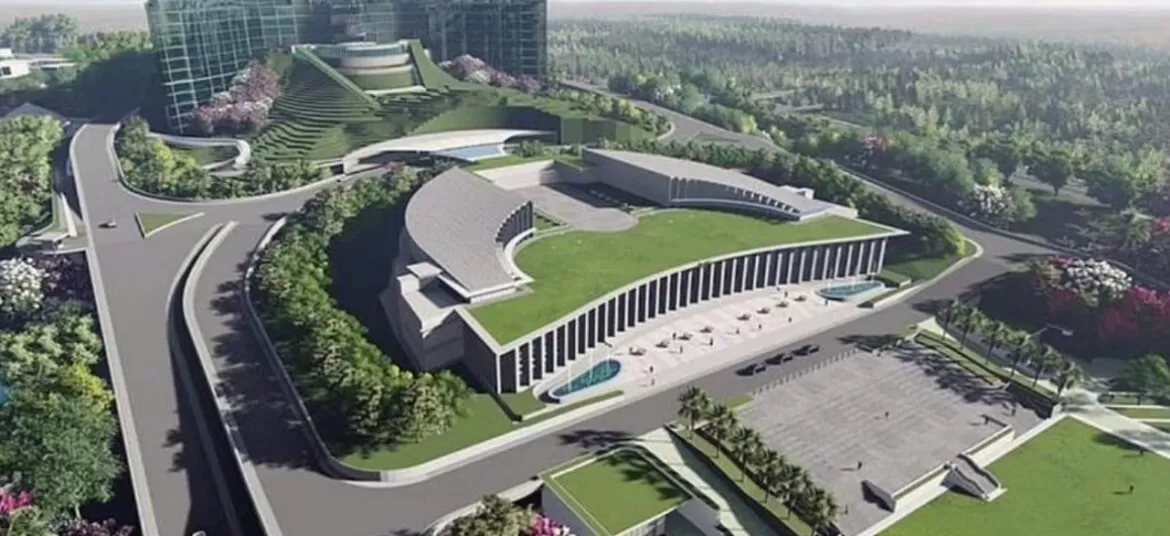From infrastructure and transport to renewable energy, investment opportunities in the new capital city project are aplenty.

Indonesia’s new capital city project, Nusantara, is on a fast track. The country’s parliamentary budget committee has approved $1 billion in additional funds to accelerate the pace of construction in Nusantara. This is a top-up to the $1.4 billion budget for Nusantara that was previously approved.
It is anticipated that Nusantara will be ready by mid-2024, so the President and other key government officials will shift to the new location from Jakarta. The project worth $34 billion is offering tax incentives and development schemes to external investors.
Jakarta, Indonesia’s present capital, is facing an ecological crisis. The move has been necessitated by environmental projections indicating that Jakarta might sink by 2050. The new capital, Nusantara, is situated deep within Borneo’s Kalimantan jungle and is envisioned as a sustainable smart city.
THE BIG SWITCH
Nusantara is being built on 632,850 acres of land in the northeast of Kalimantan, Indonesia. The project will be undertaken in phases, with the first stage targeting a transfer of government offices to the new capital in 2024.
| THE FIVE STAGES OF NUSANTARA’S DEVELOPMENT | |
| Year | Task |
| 2022-2024 | Initiate transfer of government offices to Nusantara in order to ensure that it is a fully functional city ecosystem by 2024. |
| 2025-2029 | Strengthen Nusantara’s core areas via the expansion of housing, offices, and commercial zones. |
| 2030-2034 | Develop education, health, and high-tech industry. |
| 2035-2039 | Build the infrastructure and three-city ecosystem to speed up Kalimantan’s development. |
| 2040-2045 | Establish a reputation as “The World City for All” |
Source: Mondaq
Following this shift, the development of infrastructure facilities, education, housing, and healthcare services will follow. By 2045, between 1.7 million and 1.9 million people will reside in Nusantara. Green energy, real estate, agriculture, transport, communications, FMCG, and retail will benefit from this.
It will be a massive project because it will essentially transform inland forests into a smart city with efficient infrastructure and transport. The new administrative centre promises to provide efficient and equitable access to government services.
Achmad Jaka Santos Adiwijaya, the secretary of Nusantara National Capital Authority, has said that they are on target and have completed 26% of the project.
Currently, over 30 development projects are underway at Nusantara. These include presidential and vice-presidential palaces, ministry offices, dams, roads, and workers’ quarters. About 20% of the funds will come from the state budget and the rest from investments.
Nusantara is designed to have zero emissions, use renewable energy, and provide environmentally friendly transportation. Around 65% of the area constitutes protected forests, so the remaining 35% land will be categorised as urban areas. The plan states that transferring the state civil apparatus will begin in 2024 and Indonesia’s 79th Independence Day will be held in the new capital, Nusantara.
THE INVESTMENT OPPORTUNITIES GROW
President Joko Widodo has made a strong investment pitch for Nusantara. International investors, including a few from Singapore, visited the site of the new capital to explore business opportunities.
So far, a few MoUs and intent letters have been signed. For instance, Indonesia and Japan have signed five MoUs and 24 letters of intent to build Nusantara. The Japan International Cooperation Agency (JICA) also wants to invest in infrastructure facilities such as the upgradation of the Balikpapan Airport and the building of power lines.
That is not all. State Power Investment Corporation, one of China’s largest electricity generation companies, and Joe Green, a construction company from Singapore, are among the other companies interested in investing in Nusantara.
Indonesia is offering up to 100% tax cuts for a minimum investment of ~$650,745 in the new capital. These tax holidays will last for a duration of 10-30 years, depending on the sector. Firms that invest in Nusantara’s local infrastructure and public services will get these tax breaks till 2035. International companies willing to relocate their corporate offices to Nusantara will also get tax incentives.
Investment opportunities will bloom with the development of public infrastructure and people moving into Nusantara. Sectors like housing, commercial real estate, retail, automobiles, and healthcare offer investing options. Investors from South Korea, Japan, Germany, and the UAE are conducting due diligence to ascertain funding possibilities in Nusantara.
IS THERE A FLIPSIDE?
Environmentalists are concerned that a shift to Nusantara may impact the endangered flora and fauna in the region. However, government officials have clarified that the environment and the indigenous people will be protected against aggressive construction.
Apart from the climate concerns, there are financial challenges too. While the government is actively working to source funds, it hasn’t received external capital yet. The Indonesian General Election scheduled for 2024 and the possible change in the political regime has added to the uncertainty.
The ambitious Nusantara is heading towards its first milestone in 2024. The right financial commitments can ensure a successful and seamless transition.
Stay up to update with our latest news.
Have Us Contact You

© Copyright ASEAN Business Partners 2025 I Sitemap I Privacy Policy